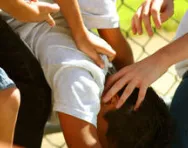Important update from TheSchoolRun
For the past 13 years, TheSchoolRun has been run by a small team of mums working from home, dedicated to providing quality educational resources to primary school parents. Unfortunately, rising supplier costs and falling revenue have made it impossible for us to continue operating, and we’ve had to make the difficult decision to close. The good news: We’ve arranged for another educational provider to take over many of our resources. These will be hosted on a new portal, where the content will be updated and expanded to support your child’s learning.
What this means for subscribers:
- Your subscription is still active, and for now, you can keep using the website as normal — just log in with your usual details to access all our articles and resources*.
- In a few months, all resources will move to the new portal. You’ll continue to have access there until your subscription ends. We’ll send you full details nearer the time.
- As a thank you for your support, we’ll also be sending you 16 primary school eBooks (worth £108.84) to download and keep.
A few changes to be aware of:
- The Learning Journey weekly email has ended, but your child’s plan will still be updated on your dashboard each Monday. Just log in to see the recommended worksheets.
- The 11+ weekly emails have now ended. We sent you all the remaining emails in the series at the end of March — please check your inbox (and spam folder) if you haven’t seen them. You can also follow the full programme here: 11+ Learning Journey.
If you have any questions, please contact us at [email protected]. Thank you for being part of our journey it’s been a privilege to support your family’s learning.
*If you need to reset your password, it will still work as usual. Please check your spam folder if the reset email doesn’t appear in your inbox.
What to do if your child is bullied

When it comes to sending our children to school, for most of us the top concern is not whether they will do well but whether they will be happy.
When a child comes home and says they have been bullied it can leave a parent with a range of emotions – from anger to worry. And no wonder: bullying often leaves a child mentally scarred and, in extreme cases, feeling suicidal. It can completely ruin a child’s experience and memory of school, as many adults bullied as children can testify.


Start a unqiue learning programme!
- Weekly programme for each school year
- Worksheets sent direct to your inbox
- Keeps your child's learning on track
One parent told the charity Family Lives (formerly Parentline Plus): “My daughter left a distressing note on our bed one night telling us that she was being bullied at school. A survey had been done in her class by one of the girls to find out ‘who hated her’. They then gave her the finished survey, which devastated her.”
Different types of bullying
When Bullying UK carried out The National Bullying Survey in 2006, they were shocked to find that 69 percent of children had complained of bullying with each suffering on average six different types. Types can include name-calling, making threats, spreading rumours or telling lies to get the person into trouble, stealing their possessions or ostracising a child from their friends.
“Bullies are exploiting new methods of technology like mobile phones and social networking websites to target their victims,” Liz Carnell of Bullying UK adds. “Cyber-bullying can actually be worse than traditional forms of bullying because the humiliation is so public when the website address is passed around to hundreds of people at school.”
Getting the bullying to stop
If your child tells you they are being bullied, explain that it is not acceptable behaviour and that you will do what you can to get the bullying to stop.
- Listen to your child's fears and reassure them that it is not their fault and that this is not something that they will face alone.
- Don't pressurise them to talk to you.
- Give them ideas of who else they could talk to – a relative, a teacher, or your GP – if they find it difficult to talk to you.
- Praise and encourage them to help them build up their confidence.
- Keep a bullying report with written details of incidents and, if known, the names of perpetrators.
- Do not accept that repeated verbal abuse is teasing and not bullying – the important difference is whether it is distressing your child.
- Ensure that the school takes action and follow up each key step until you are satisfied.
- Keep notes of meetings, copies of letters and record details of phone calls.
- If you are not happy with a teacher's response, speak to someone else – perhaps another teacher or the head teacher.
- Always discuss your course of action with your child before you go ahead. They may be scared of aggravating their bully.
- Never tell a child who is being bullied to ‘just ignore it’. If that were possible, they wouldn’t be asking you for help.
- Never tell a bullied child to hit back or they risk being punished themself. Discuss other ways in which they could stand up for themselves instead.








